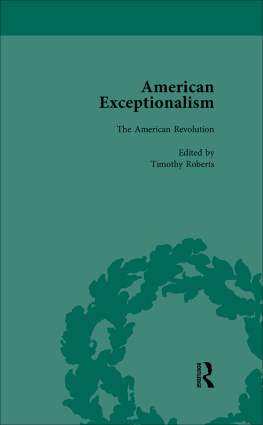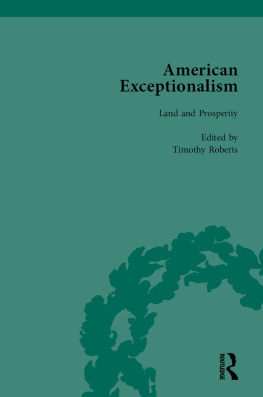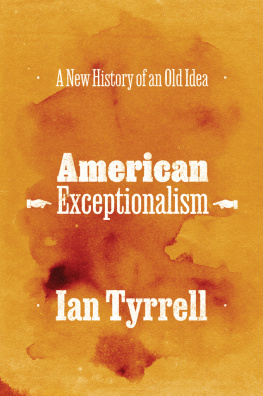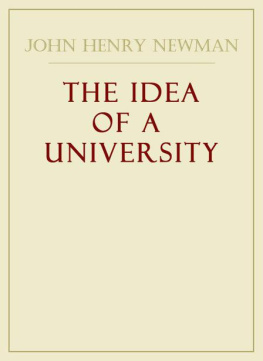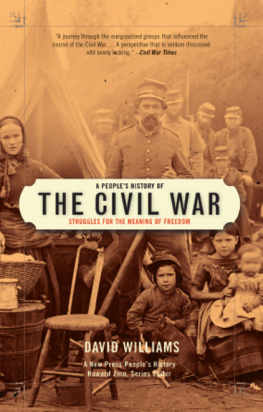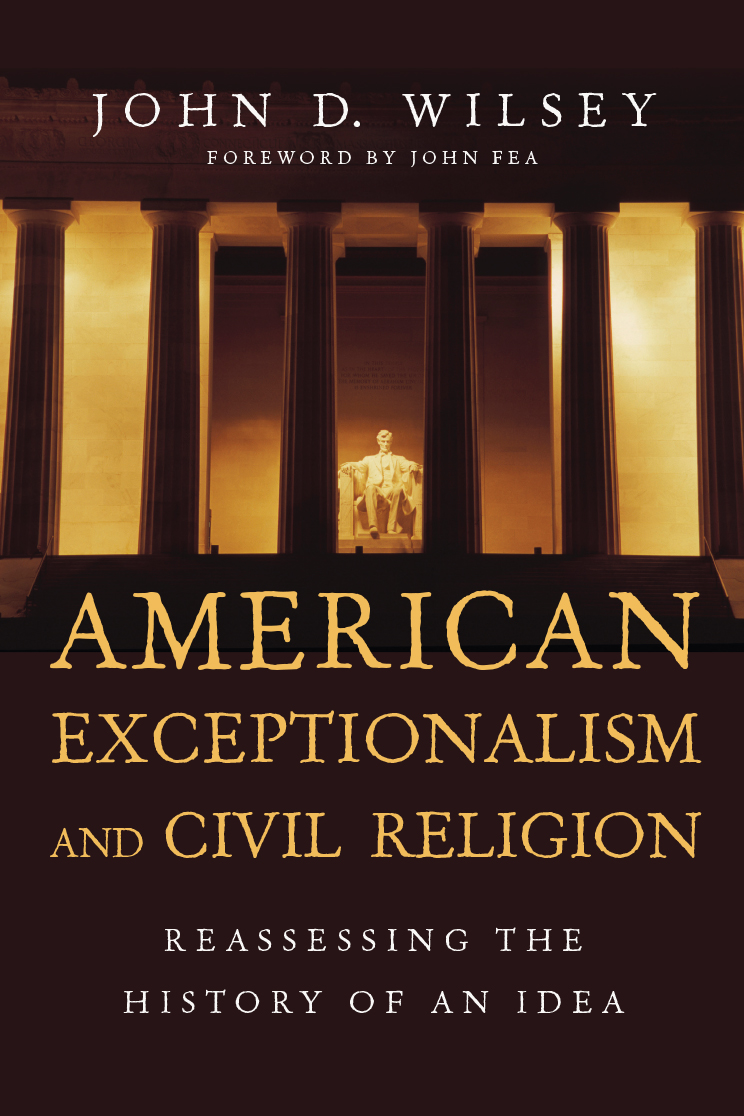InterVarsity Press
P.O. Box 1400, Downers Grove, IL 60515-1426
ivpress.com
2015 by John D. Wilsey
All rights reserved. No part of this book may be reproduced in any form without written permission from InterVarsity Press.
InterVarsity Pressis the book-publishing division of InterVarsity Christian Fellowship/USA, a movement of students and faculty active on campus at hundreds of universities, colleges and schools of nursing in the United States of America, and a member movement of the International Fellowship of Evangelical Students. For information about local and regional activities, visit intervarsity.org .
Scripture quotations, unless otherwise noted, are from The Holy Bible, English Standard Version, copyright 2001 by Crossway Bibles, a division of Good News Publishers. Used by permission. All rights reserved.
While any stories in this book are true, some names and identifying information may have been changed to protect the privacy of individuals.
Cover design: Cindy Kiple
Images: Lincoln Memorial: baumsaway/iStockphoto
ISBN 978-0-8308-9929-6 (digital)
ISBN 978-0-8308-4094-6 (print)
Library of Congress Cataloging-in-Publication Data
Wilsey, John D.
American exceptionalism and civil religion : reassessing the history of an idea / John D. Wilsey ; foreword by John Fea.
1 online resource. Includes bibliographical references and index.
Description based on print version record and CIP data provided by publisher; resource not viewed.
ISBN 978-0-8308-9929-6 (eBook) -- ISBN 978-0-8308-4094-6 (pbk. : alk. paper)
1. Christianity and politics--United States. 2. Exceptionalism--United States. 3. Nationalism--United States. 4. United States--Religion. I. Title.
BR115.P7
261.70973--dc23
2015029755
To Mandy, Caroline and Sally
Ad vitam aeternam
Contents
Foreword
John Fea
I s the United States an exceptional nation? Of course it is. The United States was the first nation to be built on the ideas that would come to define the Western worldfreedom, democracy and the celebration of individual rights. The United States commitment to religious freedom, the exportation of its capitalist economy around the world and its long-lasting experiment in ordered liberty make it unlike any other nation. Though not everyone may like the way the United States has used its exceptional status over the course of the last two centuries, it is hard to deny that it has been, and continues to be, extraordinary.
But if we were to approach this question from a theological rather than a historical perspective, the answer becomes more difficult. Does God have a special plan for the United States of America? Is God always on the side of American democracy or the free market? Is America a city on a hill? A new Israel? Many citizens and leaders of the United States have answered yes to all of these questions. But are they correct?
I first began to think deeply about these questions when I started teaching in the history department at Messiah College in fall 2002. Messiah is an embracing evangelical college near Harrisburg, Pennsylvania, with roots in Anabaptism, a Christian tradition that has always warned the church about the dangers of aligning too closely with the state. The school does not fly an American flag on campus, a reminder that the kingdom of God is more important than any nation-stateeven the USA. Though I do not worship in an Anabaptist congregation, I have come to appreciate the schools commitment to never letting its allegiance to the United States trump its loyalty to the higher purposes of Gods work among the people of all nations.
I do not know if John Wilsey would feel comfortable working at an institution that does not fly an American flag. As he explains in the introduction to this book, he is an ardent patriot. But if I understand his argument in the pages that follow, I think he would agree with my Anabaptist friends that Christians in the United States commit idolatry when they exalt the nation over the kingdom of God.
I first met John a few years ago at a talk I was giving at the Virginia Book Festival. At the time he was an associate pastor at a Baptist church in Charlottesville and was putting the finishing touches on his excellent One Nation Under God? An Evangelical Critique of Christian America. Shortly after that first meeting, John moved to Houston and joined the faculty of Southwestern Baptist Theological Seminary. Today he teaches history, theology and apologetics to seminarians, undergraduates and inmates in one of the largest maximum security prisons. I have seen John live out his vocation in a number of settings, from professor and author to husband, father and Baptist preacher. I know that he loves his country, but I also know that he loves his God more. I can think of few scholars better equipped to offer a nuanced historical and theological understanding of American exceptionalism and its relationship to civil religion.
John Fea
Messiah College
Acknowledgments
I owe many thanks to family, friends, and colleagues that words do not have the force to convey. My editors, Brannon Ellis and Andy LePeau, have been tremendously helpful in shepherding me through the process of producing this book. Phillip L. Sinitiere, Bruce L. Etter, Edward J. Blum, Heath Carter and Arthur Remillard each pored over every word of the manuscript. Phil and I spent many hours discussing the flow of the book, and I have lost track of the number of valuable insights and contributions he offered. Bruce and I also spent many hours together discussing the prose, and his expertise in helping me frame my ideas more clearly was invaluable. I so appreciate Eds wisdom, creativity and enormous base of knowledge. Heaths critiques challenged me toward precision and to avoid blind spots. And as an expert on civil religion, Art provided many helpful suggestions.
My friend and colleague Stephen O. Presley at Southwestern Seminary walked with me through the entire writing process. I remember the day I went into his office and asked him to look over the first draft of my book proposal before I gave it to Brannon Ellis. His encouragement and enthusiastic support have meant the world to me. All my friends and colleagues at the Houston campus of Southwestern Seminary provided me with rich conversations about exceptionalism and helped me to sharpen my thinking, particularly Benjamin Phillips, Miles Mullin and my dean, J. Denny Autrey.
John Fea has been truly an inspiration to me. He is learned, gracious and patient. I am honored to call him a friend and mentor. We were having breakfast one morning at the 2012 Conference on Faith and History meeting at Gordon College, and he specifically encouraged me to write this book. John is a great teacher and scholar, and he is also one of the classiest people I know. Many thanks also to James W. Ceaser and Raymond Haberski Jr. Both of them provided me with insights and encouragement at critical times during the project, and I truly cannot thank them enough.
My students at Southwestern have consistently helped me shape my thinking, particularly those at Southwesterns Darrington extension campus. The Darrington Unit is a maximum security prison, and the students enrolled there are studying in a fully accredited bachelor of science degree program in biblical studies. The Darrington students, as well as my traditional students at the Houston campus, always challenge my thinking. Discussing ideas with them remains a source of great pleasure and profit. I owe a special word of thanks to Darrington students Jake Strickland, Jason Karch and Jason Gibson. They tirelessly combed the manuscript to help me produce the subject and author indexes. Their contributions were invaluable.


